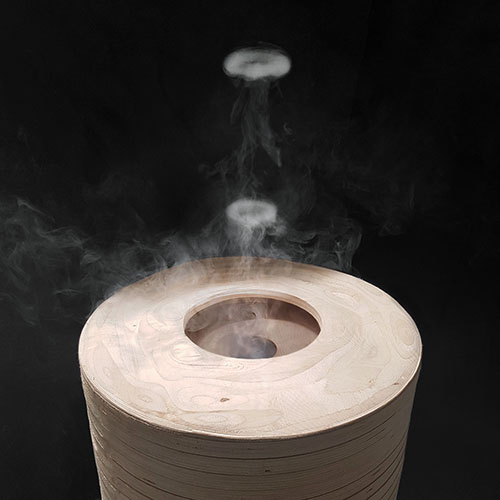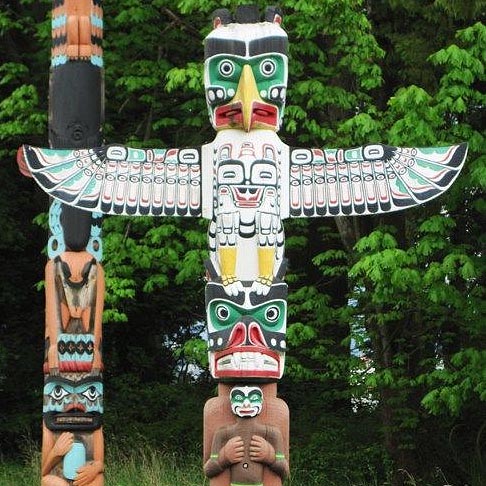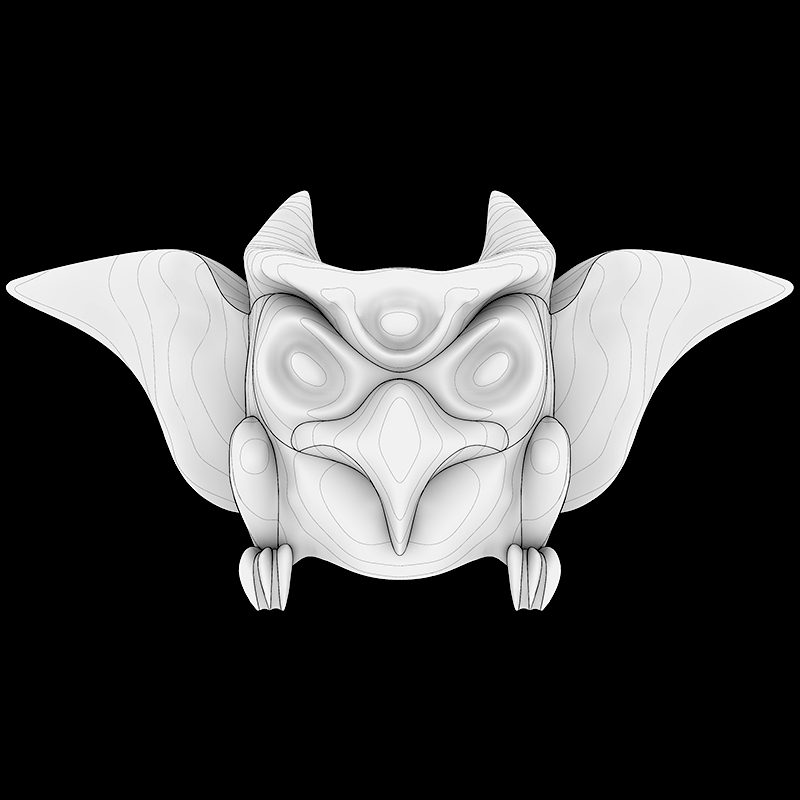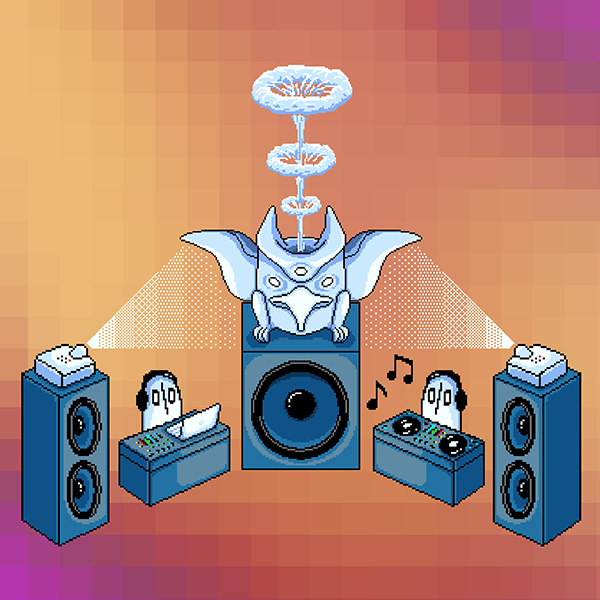TOTEM: a smoke signal machine
We usually think of new technology focused on the present and the future, but can we think of technology designed for the past?
Nowadays obsolete, smoke signals are the oldest form of long-distance communication. Native American Indians used them to transmit news or gather people together. What if we combine an ancient communication system with today's technology?
Like an artifact out of a parallel reality, TOTEM brings this lost tradition to the contemporary digital era. A retrofuturist device that could have been useful back in the Wild West times but was not possible to make until today.


design concept
Totem poles were monumental structures consisting of poles carved with symbols or figures combined in sequence. They were usually made from large trees by some tribes of Native American Indians. Each animal or spirit carved on the pole had a meaning and was an important symbol constituent of a story or myth.
A supernatural being known as the Thunderbird was usually positioned at the top of the totem pole with its wings out-stretched a symbol of power. He was a messenger from the sky and was in control of thunder and lighting. TOTEM reflects the symbolism of the Thunderbird in its design and sends messages into the sky in the shape of smoke signals.


aim
Just like totem poles were worshiped by Native American Indians, TOTEM is a device you can dance to, as it reacts to sound and synchronizes smoke signals to the beat of music. The idea for TOTEM is to become a Live Show Machine accompanied by a DJ playing some techno and a VJ mapping visuals on the bird as well as being in control of the smoke signals coming out of it.


prototype
The first prototype of TOTEM has been my Final Project for the Fab Academy 2018 in Fab Lab Barcelona. The machine basically consists of:
-A hollow wooden case (the external Thunderbird appearance has been simplified for this first prototype)
-A fog generator mechanism (dismantled from a commercial fog machine).
-A woofer at the bottom, pushing out the fog.
-A diaphragm/iris on the top, opening or closing the size of the apperture, defining the size of the smoke signal.
For a more detailed explanation of the whole done process, you can check the full project development here

For the final project presentation I programmed TOTEM to function as a manual smoke signal machine. In a similar way as Indians generated the smoke signals by covering and uncovering the fire, you can generate smoke signals by covering and uncovering a distance sensor with yor hand:
You can check my final project presentation live here (minute 16:42)
Later on, I reprogrammed TOTEM to synchronize the smoke signals to the beat of music using Sparkfun's Spectrum Shield for Arduino:
bill of materials
These are the material I used for the project:
case
| material | supplier |
|---|---|
| Plywood 1220x2500x30mm (2 units) | Fustes Gabarro |
diaphragm
| material | supplier |
|---|---|
| High Density Polyethylene (HDPE) | Fab Lab Barcelona |
| Plakene sheet (for the blades) | Servei Estacio |
| PLA 3d printed parts | Fab Lab Barcelona |
| stepper motor+cable+pulley | bricogeek |
smoke generator and pushing mechanism
| material | supplier |
|---|---|
| fog machine | diotronic |
| woofer (Beyma 12BR70) | metro electronica |
electronics (speaker board)
(boards made by milling PCB blanks and soldered components)| component |
|---|
| ATtiny45/85 |
| Mosfet NDS355AN or NDS356AP or RFD16N05LSM9A |
| 1x voltage regulator 5V |
| 1x 10K ohm resistor |
| 1x 1uF capacitor |
| 1x 2x3 smd male header |
| 2x 2x2 smd male header |
electronics (sonar board)
(boards made by milling PCB blanks and soldered components)| component |
|---|
| ATtiny45/85 |
| Ultrasonic Ranging Module HC - SR04 |
| Mosfet NDS355AN or NDS356AP or RFD16N05LSM9A |
| 1x 10K ohm resistor |
| 1x 1uF capacitor |
| 1x 6 pin smd male header right angle |
| 1x 4 pin smd male header right angle |
electronics (music reaction)
| component |
|---|
| Arduino UNO |
| Spectrum Shield |
| Stackable headers |
For a more detailed explanation of the whole done process, you can check the full project development here
download files

This work is licensed under a Creative Commons Attribution-NonCommercial-ShareAlike 4.0 International License.